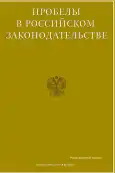Ways to Overcome Communication Barriers by Students of Professional Retraining Courses for Employees of the Internal Affairs
- Authors: Daurov A.I.1
-
Affiliations:
- North Caucasus Institute for Advanced Studies (branch) of the Krasnodar University of the Ministry of Internal Affairs of Russia
- Issue: Vol 15, No 4 (2022)
- Pages: 85-89
- Section: Articles
- URL: https://journals.eco-vector.com/2072-3164/article/view/531566
- ID: 531566
Cite item
Abstract
The purpose of this study was to study the causes and ways to overcome the communication barriers that police officers face in the course of their professional activities. The realities of modern law enforcement activity indicate an insufficient level of competence formation among police officers, so they face problems in establishing contact with different categories of people, which makes it difficult to obtain the necessary information. In the most negative aspect, communication barriers can lead to conflicts, which should be minimized in law enforcement. The more barriers an employee encounters when establishing communication with interlocutors, the higher the likelihood of not receiving the necessary and truthful information from the interlocutor to protect human rights and freedoms, expose a criminal, etc. Experts note that the root of communication barriers lies in the decrease in the general level of morality and spiritual culture of society. It has been established that the cause of the emergence of a communicative barrier when establishing contact with an interlocutor is the qualitative component of communication, its completeness and in formativeness. In practice, there are cases when on the part of employees information is presented incorrectly, tactlessly, ambiguously, inaccurately, and the interlocutor develops distrust or even apathy towards the law enforcement officer. However, it cannot be argued that the problem comes only from the side of the employee, here we are talking about the communication skills of both sides of communication, since each of them can understand the information incorrectly, interpret it according to their feelings and views, which may be erroneous. Communication barriers are purely psychological in nature and arise from the individual characteristics of both employees and respondents. And the task of educational organizations of the Ministry of Internal Affairs of Russia, where employees go to professional retraining as listeners, is to train them to build communication with any category of people, overcoming communication barriers. Training in this vein implies psychological preparation, the formation of a baggage of theoretical knowledge and constant practice.
Keywords
Full Text
About the authors
Alim Ibragimovich Daurov
North Caucasus Institute for Advanced Studies (branch) of the Krasnodar University of the Ministry of Internal Affairs of Russia
Email: daurov.alim78@mail.ru
Police Major, lecturer at the Department of Fire Training Nalchik, Russia
References
- Ashkhotova L.A. Communication in the professional activity of employees of internal affairs bodies // In the collection: The category of "social" in modern pedagogy and psychology. Materials of the 8th All-Russian scientific-practical conference with remote and international participation. Scientific and educational center "Perspektiva". Ulyanovsk, 2020. pp. 341-344.
- Balashova V.A. Communicative tolerance as a determinant of professional communication of a police officer // In the collection: Actual problems of the psychology of law enforcement: concepts, approaches, technologies (Vasilyevsky readings - 2021). Materials of the international scientific and practical conference. St. Petersburg, 2021, pp. 55-59.
- Military pedagogy and psychology / A. V. Barabanshchikov, V. P. Davydov, E. P. Utlik, N. F. Fedenko // Ed. A. V. Barabanshchikova. M.: Military Publishing House, 1986. 239 p.
- Karimova T.S. The problem of the formation of the communicative competence of police officers as a professionally important quality // Successes in the Humanities. 2020. No. 7. pp. 101-106.
- Kardanov R.R., Mashekuasheva M.Kh. The communicative aspect of the professional training of a police officer // Historical and socio-educational thought. 2016. V. 8. No. 6-2. pp. 104-107.
- Koblov F.Ch. To the question of the formation of professionalism of employees of internal affairs bodies // Eurasian legal journal. 2018. No. 10 (125). pp. 363-364.
- Kovtun N.A. Communicative competence in the system of law enforcement as a socio-cultural factor // In the collection: Activities of law enforcement agencies in modern conditions. Collection of materials of the XXIII international scientific-practical conference. In 2 volumes. 2018. pp. 288-292.
- Kochesokova Z.Kh., Mashekuasheva M.Kh. Features of modeling individual strategies of communicative competence in the activities of police officers // In the collection: Society in an era of change: the formation of new socio-economic relations. Materials of the V international scientific-practical conference. 2014, pp. 121-123.
- Kuchmezov R.A. Characteristics of the ability to establish trusting relationships with the population among police officers // In the collection: Modern pedagogical technologies of vocational education. Collection of articles based on the materials of the International Correspondence Scientific and Practical Conference. Moscow, 2019. pp. 239-244.
- Rodin V.F., Khomutov A.M. Some problems of professional communication of employees of the Ministry of Internal Affairs of Russia // Psychology and Pedagogy of Service Activities. 2020. №2. pp. 108-112.
- Tarasova Ya.O. Communicative competence in the performance of a modern policeman // In the collection: Topical issues of social and humanitarian knowledge in the system of higher education. Collection of materials of scientific seminars. Voronezh, 2020. pp. 107-109.
- Usmanova E.F. Communication barriers in the activities of law enforcement officers // Humanitarian and political and legal research. 2021. No. 4(15). pp. 38-46.
Supplementary files








